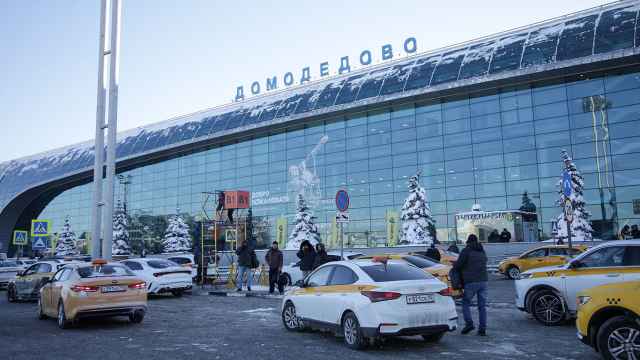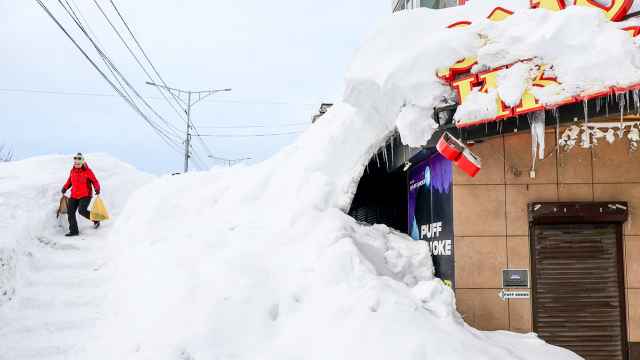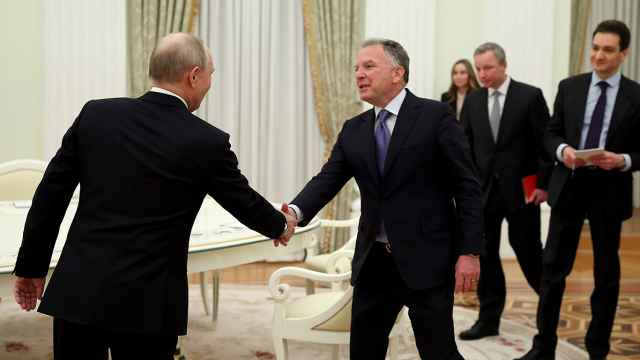The St. Petersburg International Economic Forum is taking place as the global economy is facing new challenges. These challenges are certainly less troublesome that those in fall 2008 when the global financial system seemed to be falling apart, or in 2009 when the global economy declined for the first time in a decade.
The situation in the world economy in general, as well as in almost every individual country, seems to be more stable at the moment. But the very fact that almost every country is facing major risks in the near future, and that it is not clear how these problems will be resolved, is somewhat reminiscent of the St. Petersburg economic forum of 2008. Then, everybody was talking about global imbalances and the subprime mortgage crisis. Yet, the world economy was booming, and there was a general belief (or hope) that financial institutions’ problems related to the subprime-caused losses would get resolved somehow. But as much as everybody wanted to defy the logic of the looming financial crisis, the laws of gravity finally worked just three months after the optimistic meeting in St. Petersburg in June 2008.
What are the new challenges that the global economy is facing now? For the first time in peacetime history U.S. debt is about to reach 100 percent of its gross domestic product. The largest European economies, France and Germany, are also way past the 60 percent of GDP threshold set in the Maastricht criteria and are approaching even more threatening levels of debt. Rating agencies are now talking about downgrading U.S. and French debt. This would have been unthinkable in 2008.
The situation is yet far worse in Greece and several other smaller European economies. While European policymakers are still insisting that Greece will not default, markets no longer believe them. Unlike just a year ago, Greece’s default (regardless of how you call it — “haircut” or “restructuring”) now seems, too, almost inevitable. Moreover, there is now a substantial probability of Greece leaving the euro zone — again, something unprecedented and unthinkable previously.
On the other side of the Atlantic, how is the United States going to pay off its debt? One easy option is to inflate it away. So far, the markets do not seem to believe this. They expect inflation to remain trivial in the short run and rise to normal long-run trend in the medium term. Judging by implied inflation rates in the yield differentials between inflation-protected and straight U.S. Treasury bonds, the markets expect the dollar inflation to remain at 2 percent per year in the next 10 years. This means that the markets are either overoptimistic, or they assume that the United States will manage to implement a huge reduction in the budget deficit. The reduction must be at the level of about 4 percent of GDP a year, or a whopping $600 billion. Certainly, such a sizable fiscal consolidation, either through a massive reduction in government spending or through a tax increase, cannot happen before the 2012 presidential election. But even if the newly elected president manages to push through such a package, it will substantially slow down the economic growth in the United States — and therefore globally.
Another new challenge is the fact that the U.S. monetary policy cannot get out of the “zero lower bound” trap for such a long period of time. Despite massive monetary expansion — also known as “quantitative easing 2,” or QE2 — the Federal Reserve cannot generate positive nominal interest rates that would help break the vicious circle and provide incentives to invest the liquidity in the United States. For example, one-year rates in the United States are now at 0.2 percent per year, and two year bonds only pay 0.5 to 0.6 percent per year. But the free cash printed by the Federal Reserve is now being invested all around the world, most importantly in the emerging markets. Once again, this is a new challenge. The textbooks do not tell the policymakers what to do when emerging markets become the hope for global economic growth, while the developed economies continue to be a drag on this growth.
Yet even this is not the end of the story. If emerging markets were certain to keep growing, this would possibly justify the convictions of the global optimists — who believe that whatever happens in the developed world, the global economy would keep growing at strong rates. Indeed, the “law of conditional convergence” implies that — all other things equal — the developing countries have a very high growth potential.
But “other things equal” are not assured. The economic history is full with examples of economic miracles running out of steam at a very unexpected moment. Leo Tolstoy’s “Anna Karenina” starts with the famous “Happy families are all alike; every unhappy family is unhappy in its own way.” As long as emerging markets are growing, they are all parts of BRIC (or BRICS, BRICKS, BRICSAM or N11).
Each emerging market, however, may stumble and falter in its own way. China will have to somehow meet the challenge of the newly emerging middle class requesting political liberalization. India will have to mobilize resources to invest in modern infrastructure, not an easy feat for a democratic country with a large poor population. Brazil will have to address the issue of inequality. South Korea will have to integrate North Korea at some point, which will have huge fiscal implications. All these risks are low probability events at every given moment, but they are somewhat unavoidable in the long run.
On top of the idiosyncratic risks, the emerging markets also share a problem caused by the Federal Reserve’s QE2. The hot money printed by the Fed is being invested around the world, and this may create bubbles in developing countries’ asset markets. Like the bubble in the U.S. subprime markets, these bubbles may burst unexpectedly with very painful implications for the whole world.
What about Russia? Interestingly, Russia is very different from both developed and developing markets — or as Tolstoy would say, “unhappy in its own way.” It is not a developed country in terms of per capita GDP and thus does have a very high growth potential. It is also not facing a sovereign debt crisis, as its current debt level is spectacularly low — about 10 percent of GDP. It is still very dependent on the oil price and therefore should be doing very well given the oil price is above $100 per barrel.
Yet what is most puzzling is that Russia is actually not attracting investment. Starting September 2010, Russia’s capital account became negative rather than positive. In net terms, Russia is losing $7 billion to $8 billion of capital per month, which is equivalent to about 5 percent of monthly GDP. It looks like that both Russian and foreign investors prefer not to invest in Russia, where the investment opportunities are indeed aplenty, and instead pick the United States, despite zero interest rates, or Europe, despite significant default and depreciation risks, or Asia, despite with the risk that bubbles may burst all over the place.
President Dmitry Medvedev gave the only plausible explanation of this puzzle when he said Russia is suffering from chronic and comprehensive corruption and has a very bad investment climate.
Sergei Guriev is dean of the New Economic School in Moscow. He will moderate the session “Economists’ Workshop: Identifying the Known Unknowns” at the St. Petersburg International Economic Forum on Friday from 3:45 to 5 p.m., as well as “Training Young Russian Professionals at the World’s Leading Universities” on Saturday from noon to 1:15 p.m.
A Message from The Moscow Times:
Dear readers,
We are facing unprecedented challenges. Russia's Prosecutor General's Office has designated The Moscow Times as an "undesirable" organization, criminalizing our work and putting our staff at risk of prosecution. This follows our earlier unjust labeling as a "foreign agent."
These actions are direct attempts to silence independent journalism in Russia. The authorities claim our work "discredits the decisions of the Russian leadership." We see things differently: we strive to provide accurate, unbiased reporting on Russia.
We, the journalists of The Moscow Times, refuse to be silenced. But to continue our work, we need your help.
Your support, no matter how small, makes a world of difference. If you can, please support us monthly starting from just $2. It's quick to set up, and every contribution makes a significant impact.
By supporting The Moscow Times, you're defending open, independent journalism in the face of repression. Thank you for standing with us.
Remind me later.







